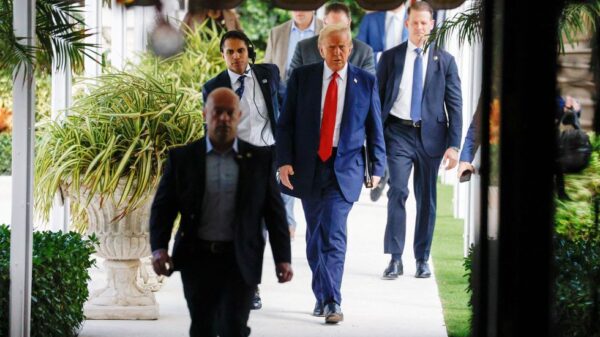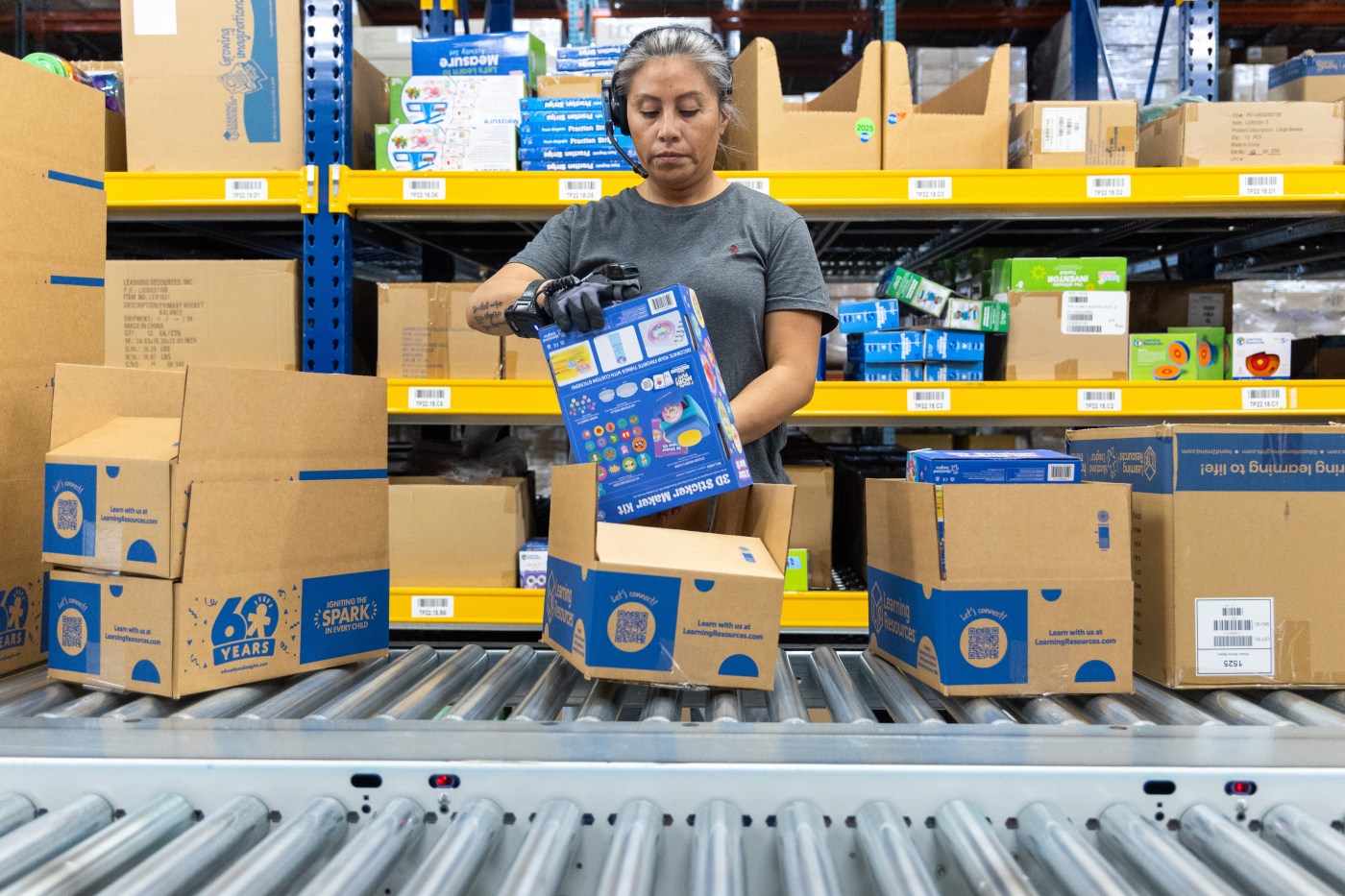UPDATE: A Vernon Hills toymaker is escalating its battle against the Trump administration’s tariffs, taking the fight to the U.S. Supreme Court. Learning Resources, alongside its sister company hand2mind, is challenging the legality of tariffs that surged from approximately 20% to 104% earlier this year.
In a warehouse buzzing with activity, workers at Learning Resources pack educational toys designed to inspire children. However, the company’s CEO, Rick Woldenberg, is determined to confront the financial challenges posed by these tariffs. The Supreme Court is set to hear the case on November 5, 2025, consolidating Woldenberg’s lawsuit with others from various states.
“We believe the tariffs are unlawful. That’s why we went to the Supreme Court,” Woldenberg declared. He emphasizes the need to protect his business and employees, stating, “Rather than reshape our company to suit the needs of politicians, we’re trying to assert our rights as citizens.”
The tariffs have already prompted significant consequences for U.S. businesses. A recent analysis by the JPMorgan Chase Institute predicted a staggering $82.3 billion cost impact for American companies, leading to potential price hikes, layoffs, and hiring freezes. Economists warn that companies often pass on around 80% of these costs to consumers, which could ultimately hurt sales and investment in domestic production.
“Tariffs could stimulate domestic production, but the reality is complex. Retailers selling toys will be adversely affected,” noted Steven Durlauf, an economics professor at the University of Chicago.
Despite the mixed opinions on tariffs within the business community, all companies face uncertainty due to the erratic nature of tariff announcements. Mark Denzler, CEO of the Illinois Manufacturers’ Association, expressed concern over the lack of predictability, stating, “Businesses like certainty, and it’s difficult for them to plan effectively with changing announcements.”
Woldenberg’s determination to fight back is deeply personal. He has maintained all staff positions but has ceased filling vacancies and raised prices on some toys by 5%. He also cut planned investments, acknowledging, “The more they charge us in tariffs, the less we have to spend on our people here.”
Since the 1980s, Learning Resources has sourced over half of its products from China, relying on long-standing relationships with suppliers. The company has previously explored diversifying production to Vietnam and India but has faced challenges maintaining quality and price.
Woldenberg, who has deep family roots in the business dating back to 1916, remains committed to his mission. “Millions of children have their educational trajectory affected by what we do,” he stated passionately. “It’s a big source of motivation to fight the threat from tariffs.”
As the Supreme Court hearing approaches, the stakes continue to rise for Woldenberg and his employees. The outcome could significantly impact not only Learning Resources but also the broader landscape of American manufacturing and consumer prices. Stay tuned for further updates as this urgent case unfolds.




































































